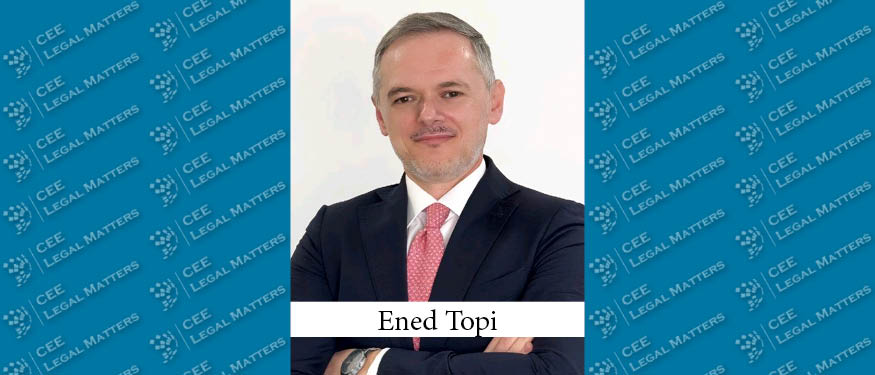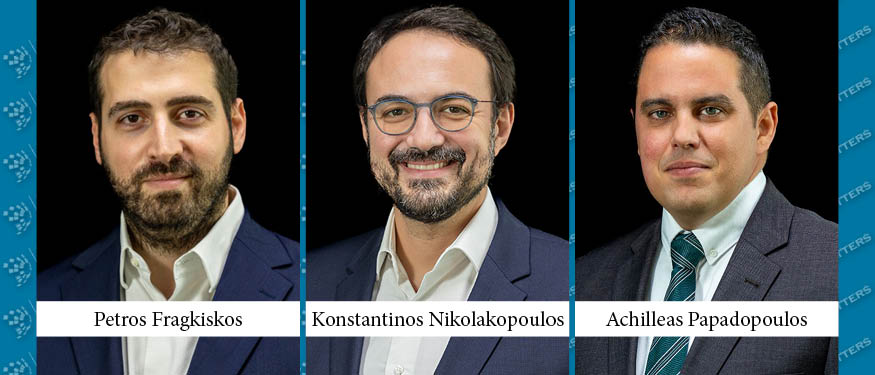On July 29, 2024, in the Official Gazette No. 32616, Türkiye’s International Direct Investment (‘‘IDI’’) Strategy for the period 2024-2028 was announced to the public. This strategy aims to move Turkey to a stronger position on the global investment map by setting Turkey’s goals and priorities in the field of international direct investments and targets to create a comprehensive support mechanism to reduce the obstacles faced by investors in Turkey and to provide solutions to their needs.
The policies to be implemented within the scope of the strategy for the 2024-2028 period have been determined within the framework of the themes of “Investment Climate Competitiveness”, “Green Transformation”, “Digital Transformation”, “Global Supply Chain”, “Qualified Human Resources” and “Communication and Promotion”.
In this article, we will briefly describe the policies and related actions under the 6 main “themes” that set out the core policy framework of the IDI strategy.
- Investment Climate Competitiveness
In order to attract qualified IDI projects that will support the twin (green and digital) transformation of the Turkish economy, a strategic prioritization study on long-term investment loans and incentive mechanisms to accelerate the green and digital transformation of the industry will be implemented in terms of the effectiveness of the incentive mechanisms offered to investors. One of the main objectives is to strengthen the physical, legal and digital infrastructure necessary to develop the technology entrepreneurship ecosystem and to increase alternative and innovative financing opportunities. In this respect, it is planned that an arrangement will be made to extend share-based long-term premiums for technology start-up companies and the foreign investment limit for Venture Capital Investment Funds (“VCIF”) will be increased.
In addition, efforts will be made to develop alternative dispute resolution procedures to ensure that investment disputes between investors and public institutions are finalized in the fastest and most cost-efficient way through reconciliation of the parties. In this context, it is emphasized in the strategy report that a commission with broad participation will be established, needs analysis and necessary studies will be carried out, and the Ministry of Justice will complete the legislative preparations for the activation of the administrative settlement procedure.
The R&D laboratories to be established in Türkiye by national or international companies that produce pioneering scientific and technological knowledge in their field within the scope of projects to deepen the activities of international investors in Türkiye and to direct them to more value-added areas such as R&D and design are aimed to be supported within the framework of the pioneering R&D Laboratories Support Program.
- Green Transformation
One of the main policies is to increase renewable energy production, disseminate climate and environmentally friendly technologies and facilitate investors’ access to green energy. Under the green transformation policies of the strategy report, many actions are targeted to be implemented. For example, efforts will be made to develop investments and technologies for hydrogen fuel cells and components and hydrogen-based engines, new Renewable Energy Resource Areas (“RERA”) tenders with local component obligation will be held, and efforts will be made to develop offshore RERA projects. In addition, the need for an amendment to the Coastal Law No. 3621 to allow the installation of Solar Energy Based Electricity Generation Facilities (“SPPs”) on natural and artificial lakes will be submitted to the Parliament.
In addition, the Treasury lands that can be allocated for renewable energy investments will be determined on a regional and sectoral basis, taking into account environmental and social impacts and logistical requirements within the framework of the long-term investment needs of our country, and it is aimed to announce Treasury lands for the establishment of unlicensed Wind Power Plants (“WPP”) and SPPs. In this respect, international standards and regulations, particularly the European Green Deal, will be followed to support Türkiye’s green transformation process. In addition, in order to ensure standardization in the presentation of sustainability and emission data, these data will be made available for sharing and legislative work will be carried out to establish a National Green Taxonomy that is in line with international taxonomy examples, especially the EU taxonomy, and that takes into account Türkiye’s needs.
A favorable investment environment will be provided to attract technological investments with high energy efficiency and saving potential to the country, and energy efficiency investments will be supported by prioritizing energy-intensive sectors, taking into account competitiveness and domestic production. In this respect, it is aimed to increase the number of activities in this field with the Call for Green Transformation in Industry and SAYEM Green Transformation Call to be launched within the scope of the Türkiye Green Industry Project.
- Digital Transformation
Within the framework of the policies targeted under the “Digital Transformation” theme of the Strategy Report, it is planned to implement the necessary regulations for production and trade by following international standards, data policies and legal regulations that will support the digital transformation process of our country.
In this context, it is planned to establish mechanisms to encourage the development of domestic companies offering data center services and to enable competition; to support the domestic production of 5G base stations, to eliminate infrastructure deficiencies by expanding their installation, and to encourage the establishment of broadband infrastructure in regions where infrastructures cannot be developed, taking into account regional differences. In this respect, the strategy report aims to focus on training qualified manpower in the fields of software, hardware and infrastructure in 5G and beyond next generation communication technologies, and in emerging technology areas such as the Internet of Things, artificial intelligence, big data, quantum, cyber security, smart transportation, augmented reality; and to open higher education programs in the fields of artificial intelligence, big data and cyber security.
- Global Supply Chain
In order to strengthen Türkiye’s integration into global value chains, the need for amendments to the Law No. 4054 on the Protection of Competition in relation to digital markets is planned to be submitted to the Turkish Grand National Assembly to increase the level of harmonization with international trade policies in the field of green and digital transformation. In addition, the strategy report states that a report and road map will be prepared in order to take measures against the risk of trade barriers for Türkiye due to the legislation recently developed by the EU in areas related to the digital economy. In this context, efforts will be made to update bilateral and multilateral agreements to which Türkiye is a party and to realize new agreements, taking into account the economic developments in Türkiye and in world trade. In this respect, it was decided to continue negotiations on Türkiye-Japan and Türkiye-Thailand FTAs.
In order to strengthen Türkiye’s position in global value chains, Türkiye aims to improve its logistics capabilities and infrastructure in all modes of transportation, taking into account environmental and green transformation sensitivities. In this respect, support for green port practices will continue by encouraging the use of low-emission/non-emission producing machinery and equipment to increase energy efficiency and minimize environmental impacts in port operations, and the regulation on issuing green port certificates to coastal facilities will be put into practice. In addition, infrastructure and technology investments will be made for the use of electric or other alternative fuel vehicles in all modes of transportation, and harmonization and legislative arrangements for new generation, sustainable, integrated mobility services will be completed. In order to strengthen the global supply chain, it is also aimed to build a transit cargo-oriented main port in the Eastern Mediterranean region, which will contribute to the development of the region and increase exports, and will be the gateway to the Middle East and Central Asian countries.
In order to strengthen the domestic supply chain, it is aimed to encourage SMEs to cluster around large-scale companies, and it is aimed to facilitate the matching of SMEs in order to articulate SMEs in the supply chains of main industry manufacturers and large enterprises, and to support the necessary quality, efficiency, capacity increases and product development activities within the scope of supplier development processes.
- Qualified Human Resources
The qualified human capital needed by Türkiye within the framework of the twin transformation will be developed and legislative work will be carried out in accordance with the new working models emerging from the professions of the future. In this respect, measures will be taken to ensure that software developers working remotely or on-site abroad can be employed in a way that will increase the added value of the domestic IT sector, and it will be ensured that qualified human resources with doctorate degrees needed in the industry will be trained through university-industry cooperation and employment of researchers with doctorate degrees will be encouraged.
In order to train the technical human resources needed by qualified IDI profiles, efforts will be made to increase the quality and reputation of vocational education, and the transition of individuals with vocational and technical education to the labor market will be facilitated. In this respect, cooperation protocols will be established between vocational and technical education institutions and Organized Industrial Zones (“OIZ”), and pairings will be carried out with private sector institutions, including Industrial and Commercial Chambers and the managements of Organized Industrial Zones, and it is planned to ensure sectoral clusters in the field of vocational education.
As also stated in the Strategy Report, target-oriented efforts will be made to increase Türkiye’s international visibility in the field of human resources, attract qualified human resources from abroad and retain existing talents. In this context, support and arrangements will be made to attract entrepreneurs from abroad to Turkey by establishing a visa model for first-stage entrepreneurs, and efforts will be made to encourage and facilitate the employment of qualified foreign PhD researchers and academicians.
- Communication and Promotion
By adopting a 360-degree communication approach, it is aimed to actively promote Türkiye’s investment environment through tools such as investment diplomacy, international campaigns and media relations, etc. It is planned to organize various events and participate in leading events to promote Turkey’s investment environment on a national and international scale.
Efforts will be made to strengthen the “Invest in Türkiye” brand and to develop and effectively communicate effective messages to target audiences in line with the vision of the “Century of Türkiye, Century of Investment”. In this respect, within the scope of each qualified IDI profile, potential investment areas and country/region-specific potential investor companies will be identified for the 2024-2028 period, and investment attraction activities will be carried out for these companies. In addition, it is planned to carry out target-oriented investment attraction activities for IDI companies operating in Türkiye to expand their investments in Turkey to more value-added areas (R&D and design center, regional management center, shared service center, regional distribution center, etc.).
By Aden Guler, Trainee lawyer, Guleryuz Partners














